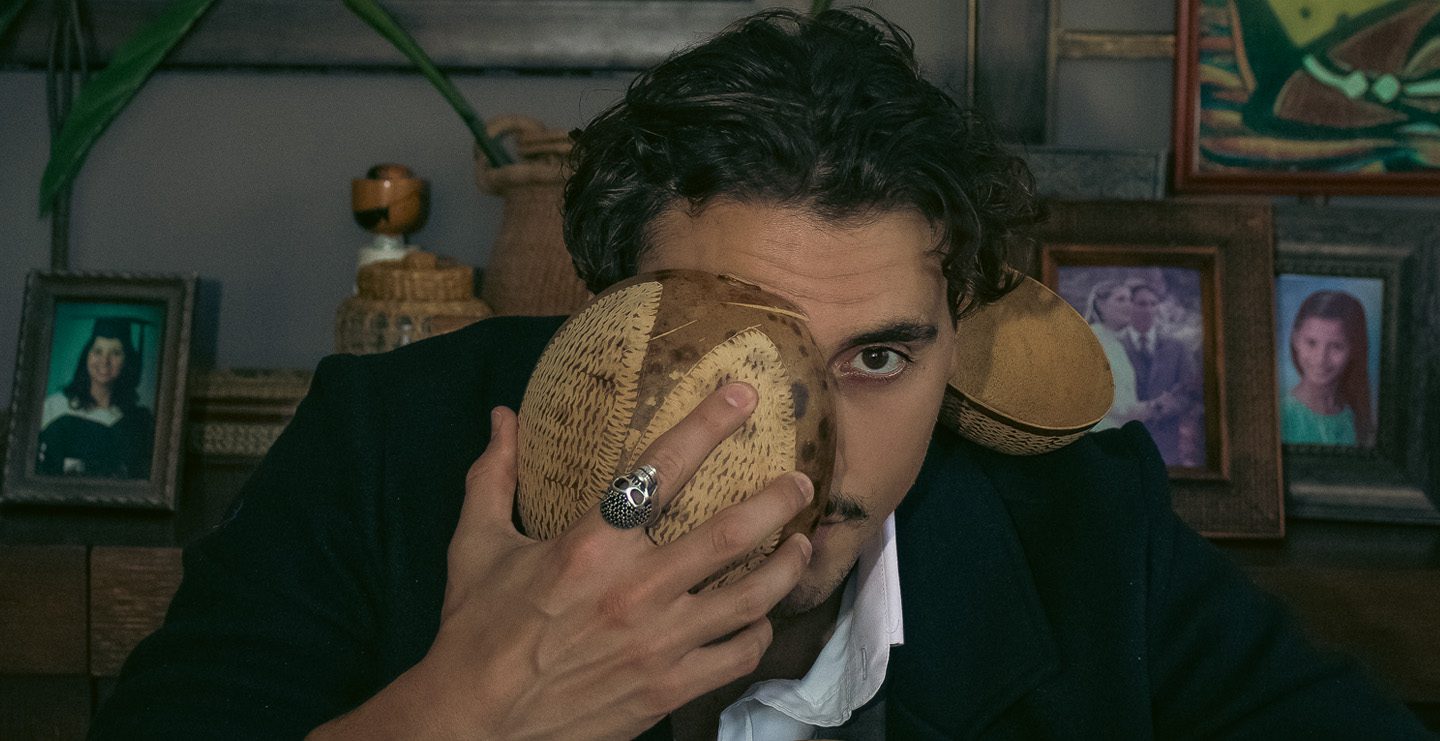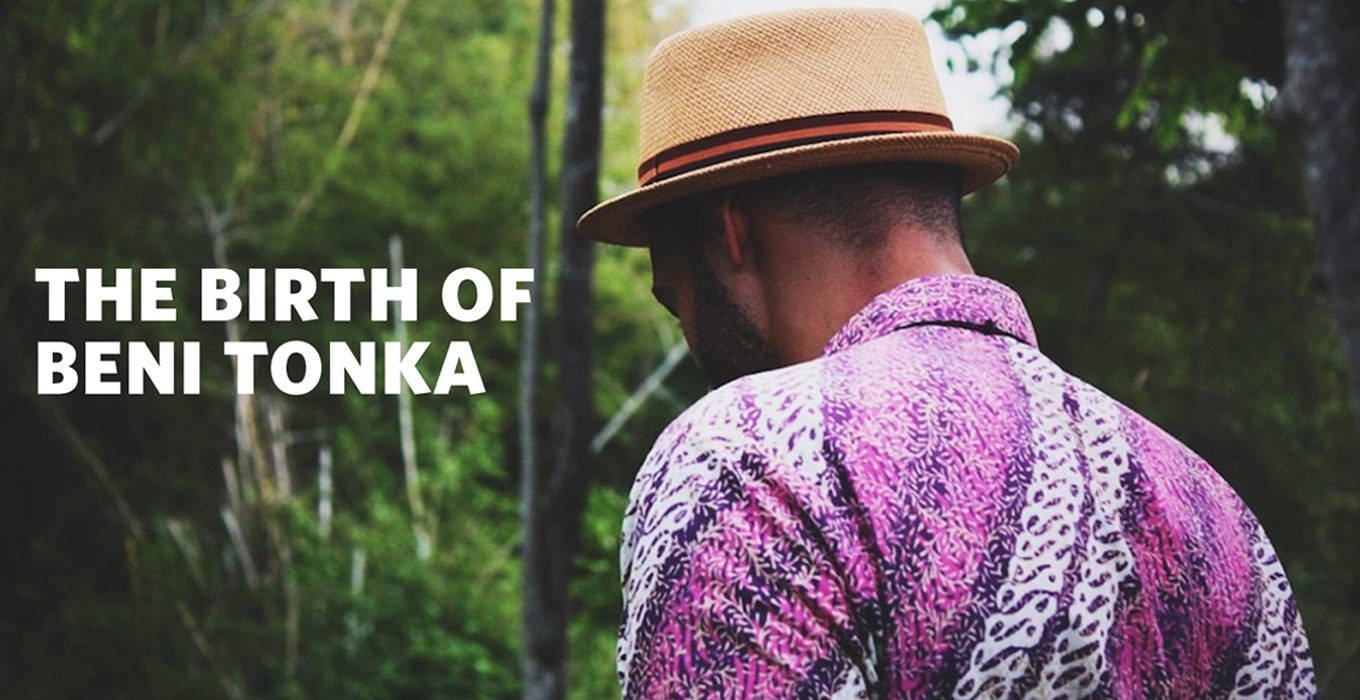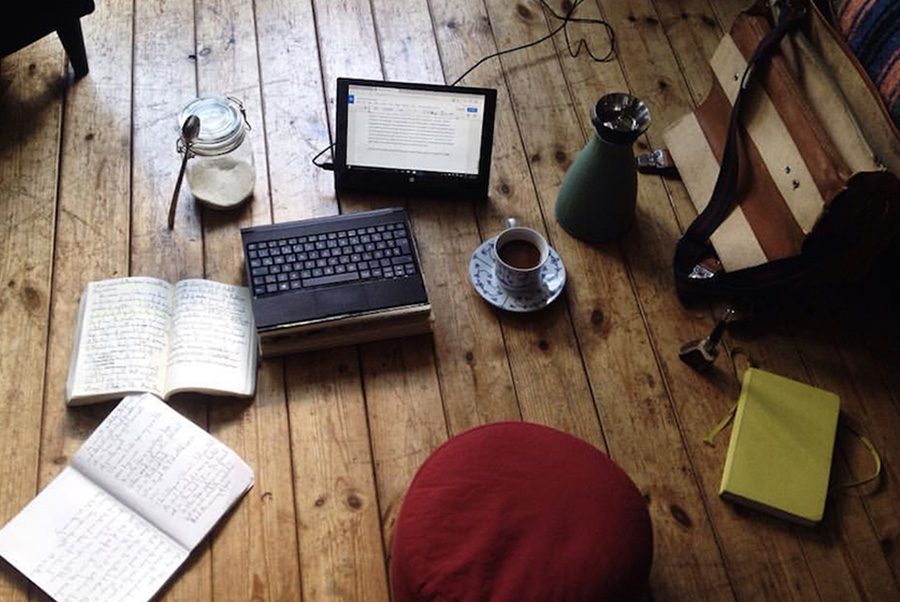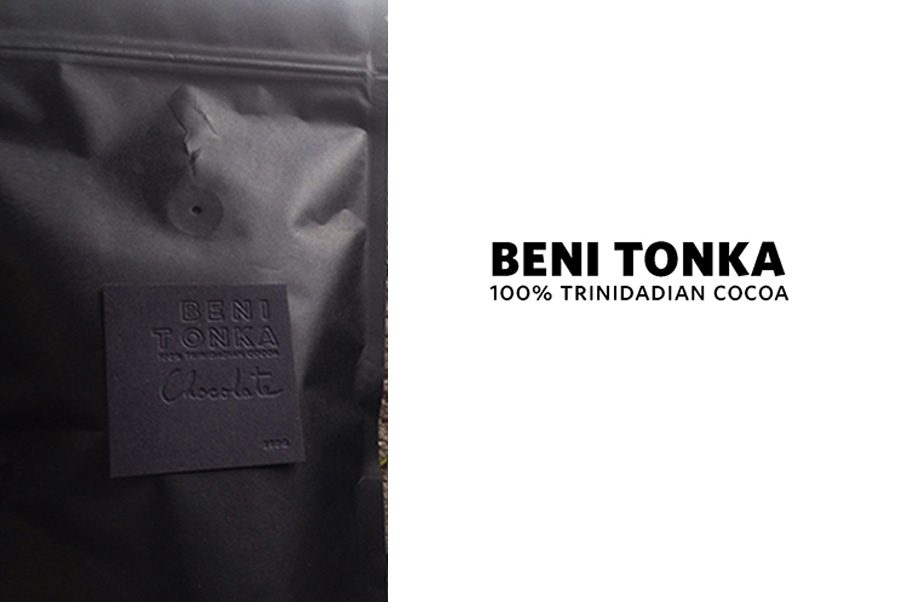

October 21, 2016
Five years ago, I met my family in Trinidad and Tobago for the first time. Rounding the final curve of my 20’s, I arrived on one of the most festive days of the year, Carnival Monday. On display was the grandest and wildest show in the country, perhaps the entire Caribbean. After finally freeing myself from the tangle of customs and baggage claim, I found myself once more surrounded by people in costumes, masquerading as something or another. There were revellers everywhere, all colours, all sounds. All this sensual excitement only added to my fatigue. So, I gazed up at the sky to gather myself for a moment. Above the terminal, the afternoon blue was easing itself into a slightly less blue shade of purple. Three black, white birds soaring in formation, entered the frame. The voice of Sir David Attenborough moved through me in an instant. “Magnificent frigate birds!” I whispered. Pirates of the skies, known locally as, Man o’ war birds. Yes, the Caribbean! I had arrived… That trite association went away as fast as it took my head to come down. Someone called my name. I searched the crowd for a face I could recognise, and found one.
I awoke Ash Wednesday to the call, recall of the tropics. The breeze and all its greenness applauded throughout the bush, then landed on me after a long flight and grazed on the exposed parts of my feet and face. An indirect light let itself in, careful not to interrupt the morning cool. My eyes wandered around my new surroundings. They followed the breeze entering by window and the space between roof and the one-room annex behind the house. The interior was painted a perfect shade of green, a mint pastel reminding me of the centuries old copper domes and sculptures along the Rhine ― having long been exposed to the elements, they undergo a series of chemical reactions giving the polished metal that ornate patina. And near the wooden, half-weathered front door, stood an aging picnic bench in red. It once belonged to our late neighbour, Mrs. Palmer, and is said to be over 100 years old. Resting on top of it, just outside the shade of an overburdened bookshelf, was a bowl, a calabash, no doubt meant for me to bathe with. My eyes circled over to the right side of the bed ― way before hammock days and mosquito net nights ― to what had hitherto been confined to my periphery. A large mortar, in orange, carved out of a single block of cedarwood. A matching pestle of the same material, leaned against it. Smooth on the eye, the effect of having been sanded down over generations by the industry and oil of the human hand.
My eyes watered at the aesthetic and significance of it all. I laid there, gazing out at the palm sway, the fig leaves – banana – and the cocoa trees. A lonely giant spread its broccoli bloom across the blue day. The yellow tail found its branch and I, in a good humour, found my feet. The door was open. I leaned onto the banister. On it lay an expertly peeled grapefruit half. My father must have left it for me. Smiling, I picked it up and went for a bite. Small blunders are punished swiftly in the bush. “In the bush, son, everything is a trap.” My bottom lip was numb from kissing that fuzzy, inner layer of pith. Like Novacane. It was bitter. And it wouldn’t be the last time my taste buds would learn their limits. I changed course – unwilling to give up on the fleshy, fresh morning juice – beginning on the other side this time. I opened my mouth in the traditional manner, squeezing the fruit from a height. The juice dropped freely into my mouth, soothing my lips and clinging to my beard. Nice. I slid on my shoes and went for a run.
I headed south. Uphill and down, waving to everyone, saying good morning to all. The good-humour man, smiling at children on their way to school, smelling smells, new things, new sights, buildings, trees, dodging dogs, hitting trails, going too far, turning around, then heading back.
When I left it was still cool. When I returned, the sun had nearly re-claimed the grapefruit juice in my beard and I longed for a cold bath. I was hungry, too. If I’d been back in Cologne, there’d been a cafe or supermarket to go to; but, I was here now. In the country. Where I wanted to be. So, I could handle it. Just, I didn’t quite know where my father was or what he was planning or when he’d be back. He ran the Moruga Chronicle at the time and was always on the run. I resolved to wait and see.
Then, as if on queue, I heard a muted, rhythmic clatter approaching from downstairs and around the corner. I heard my name. So beautiful, the way she said it. Her voice framed the tropics and the Caribbean framed her voice. It was harmonious, how she entered my life. My grand Aunty Eileen, derived from pre-Greek Helené, the goddess of vegetation.
I muddled over to the banister to watch my goddess approach in her finely embroidered, West African textiles. They were draped around her waist and over her shoulders in the Persian, Ethiopian fashion. She carried a tray. On its surface was a small, porcelain plate decorated with indigo flourishes ― flowers, vines, circling things. Balancing itself on the plate, was a disproportionately large wedge of coconut bake ― coconut bread or roast bake, a local favourite ― and a ramekin of guava jam. A porcelain cup of the same family, perched on a saucer next to it. A pitched lid protected its contents; the source of that rhythmic clatter. For me, this detail only heightened the mystery. The contrasts were stunning. In a dream, I imagined her mixing the various potions and cures and spells Moruga was known for. As she reached the stairs, I began sensing the complex, yet familiar aromas; the private spirits dancing and whispering secrets of heritage and healing. They were finally making their way toward me after all these years. Coming to, I saw it was my Aunty, my poor Aunty. I snapped out of the trance and jolted down to meet her. She was older, hence, why the intervals between each clatter became more pronounced with each step. I gently lifted the tray. She was grateful and joined me the rest of the way. I thanked her deeply, almost bowing. She turned to me and smiled, “Try it. Let me know what you think.” And spirited off as regally as she’d come.
By this point, I was salivating. I was curious about the mysterious brew beneath the lid, a something I knew well ― thought I knew ― but it was new and more exciting. My hunger, though. I let my curiosity go and it flew off into the upper canopy somewhere. I bit into the bake. A mouthful; but, I didn’t care. It was crazy good. The crust was of a slight, fireside roast, with the type of crisp that first breaks, then folds into the palate. I felt a warm sensation move from my incisors to my gums; the bake’s inner space. Well insulated, it had the texture of what an American biscuit could be if it were to meet and mate with a coconut sponge cake. And the guava jam! The two played my senses against each other. Neither of the six could make up their minds or stake any claim on any one detail. I was speechless. Clearly. I took about three or four more bites.
From somewhere in the canopy, my curiosity swooped down and landed on my shoulder. It wanted some, too. I took a deep breath as I sat myself along the banister. The sun, still holding back for the right moment, hid behind the mango and cherry trees. The breeze still wandered about aimlessly, searching from one branch to another, following a semp, then a kiskadee, and finally settling beneath a flap of newspaper under the stairs. Earlier, I’d heard toucans greeting each other. Too late for them now. Anyway, their calls would surely have been interrupted by the herds of tone-def macaws barking above the rainforest.
I let a tube of sunlight warm my forearm. Perhaps, I thought, I was conceived in a light like this one, the sweet spot between dawn and day. This then would be the ideal moment to pop the top. I tilted the lid and craned in to catch the escaping fumes. They hit me like a second wind; a pure chocolate gust – similar to that of cabin doors opening in Tobago, to that of opening an oven filled with brownies – swept through my face, opened my pores and sent my eyebrows up, my head back. Whoa! I felt for the cup. Lifted it and took a sip. Wow. Took a gulp. I was gone.
Soft notes washed over me like an unexpected harmon mute, from a trumpeter out of a third-floor window on a quiet night, while walking with a lover on a quiet street in an otherwise clamorous city. Deep arousal surfaces in a heated state. Half a cup now, and I was new. Baptised in a chocolate sea, it drank me. I saw everything; my great-grandma pounding chocolate in front her mother. Her mother throwing in spices. I heard the horn of Papa Bois – the protector of the forest – and the many grandfathers urging their grandchildren to bring home the cocoa beans from the forest after sucking the pulp along the way. Otherwise, Papa Bois would be upset and chase them around the bush. I felt all this for the first time. I felt the agouti’s impulse to plant beans for later. And because, “Agouti does forget.” I felt the bean sprouting, becoming a tree in the low canopy, bearing varicoloured fruit out of every nipple. I felt my Uncle Saga George, and my Aunty Lucille, pick up and samblé the pods. In wooden boxes, I felt the beans fermenting; the sun drying the beans in the cocoa house, villagers dancing the cocoa, and the roaster roasting. All.
The trade winds and morning dew formed a cloud. The cloud moved in front of a sun. The sun lined the cloud, warming it. The system cooled. The cloud broke behind my eyes. Tears now. And there I sat, behind myself. I sat behind my family. I sat behind the house, behind Moruga, behind Trinidad. Nearly an hour passed as I sat there materialising in the shade of the mango.
I resurfaced to find an empty cup resting before me and the remains of my early piece. I’d forgotten about the bake and the guava. I wasn’t hungry anymore; though, I finished them both. The final bite with much fanfare.
Upon returning the tray, I called out, half-jokingly, “Aunty! What’d you put in there?” Her lips pressed together. The corners of her mouth curled inwards, raising a pair of glowing, umber cheekbones. I swore I knew them from somewhere. “You mean the chocolate?” she asked, in her lofty manner. We laughed together for a minute until the sea of laughter calmed, retreating back into our hearts. “Just cocoa, dear. And a little spice.” the last syllable extending into a sincere, “You’re home now.”
This cocoa, this spice, is one of family, of ancestry. Our heritage is a diverse one. As I re-discovered. My great-great grandmother, Jane, her three sisters and her son, 5 year old, Pa Bennett, my great grandfather, drifted on a small boat from Cariacou, Grenada to Trinidad. They struggled and survived this journey all to find a better life for themselves and the young ones. Ma Daisy, my great grandmother, is from Moruga. She and Pa Bennett made their home here. Lived off the land and the sea. And built a foundation for their children. We are a mangrove people. Our roots stretch out from the native peoples of Africa, South America, the Caribbean and India. We are a manifestation of the human spirit. Yes, this was revealed to me that morning on the banister, beneath the shade of the mango. Until then, I believed I knew what family was, what home was. The same way I believed I knew what real chocolate was. It’s deeper than what I know now or knew then. It’s about what I can pass on, what we have to share.


WRITER: PB. Louison